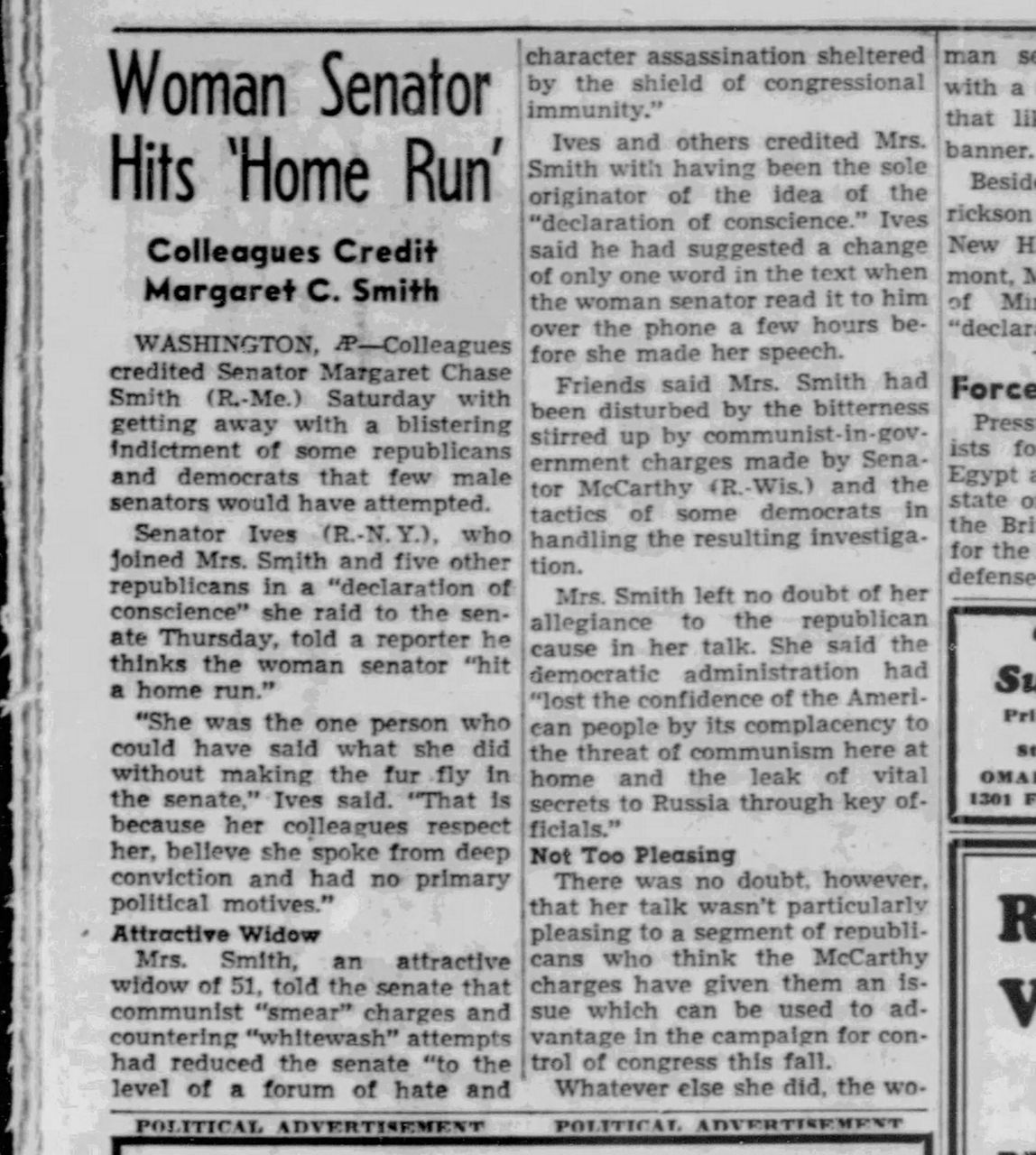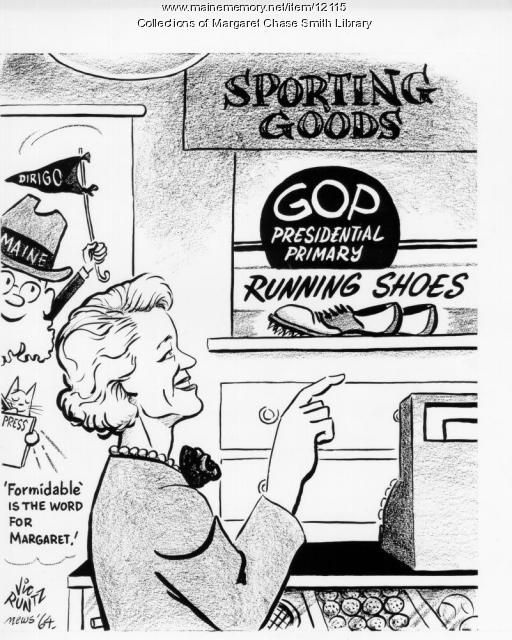In celebration of Women's History Month Spectrum News honors trailblazers whose accomplishments helped set the stage for women to come. Spectrum News Anchor Bree Driscoll takes a look at the lawmaker who broke glass ceilings.
In 1939 Mr. Smith went to Washington. A year later Mrs. Smith would also go to Washington kickstarting a decades-long career throughout which she too would refuse to yield.
“I believe that every living. person has the right to criticize constructively, the right honestly, to hold unpopular beliefs, the right to protest orderly, the right of independent thought,” said Margaret Chase Smith a year into her first year as Senator.
She was speaking out against McCarthyism when false Anti-Communist allegations took hold of the Senate during the height of the Red Scare. It was a feat many before her had been too afraid to do. Her speech would later be known as the “Declaration of Conscience.”
She said, “I believe that the exercise of these rights should not cost any human being his reputation or his right to a livelihood.”
It was a scathing rebuke of McCarthyism. Recollecting the moment, former President Richard Nixon commented on the gravity of her speech years later.
“It had a very dramatic effect on Joe McCarthy, due in part because Margaret Smith was so highly regarded as being one who had a conscience, and was fearless in terms of expressing her views,” said Nixon.
David Richards, Director of the Margaret Chase Smith Library in Maine highlights the significance of that speech.
“It caused a great sensation. The next day, all across the country and banner headlines newspapers are talking about this speech, ” he said. “So it was really the moment that put her on the national stage, and she never left until she left congress,” said Richards.

But the power was not just in what was said, but in who said it.
“It is really striking that she had the guts to get up and do that and speak in that way in the United States Senate in 1950,” said Representative Chellie Pingree.
Pingree is one of the growing number of women in elected office. Like Chase-Smith she represents Maine in Congress.
“When I got elected to the Legislature, I got a chance to meet her. I think it was very inspirational.”
Chase Smith began her political career as a Congresswoman for Maine’s 2nd district, a role she was able to secure through the political practice of “widow’s succession” following the death of her husband Clyde Smith.
Margaret Chase Smith said, “From then on, I had no and no chance of doing anything else.”
After three terms in the House Chase Smith set her sights on the Senate.
She said, “I thought that at least I should try. I should give it consideration. I thought I could win if I put all that I had into the campaign.
“She was running actually against four men, two of them Governors, one a sitting Governor and one a former Governor,” said Richards.
Chase Smith won. Securing a title that no other woman had held before her.
“At that moment when she was elected in 1948, she's the first woman who will then have served in both the House and the Senate,” said Richards.
When she graduated high school, women were still unable to vote. Decades later she was breaking barriers. But the Senator would soon set her sights even higher.

Chase Smith said, “Because of these very impelling reasons against my running, I have decided that I shall.”
Her announcement was punctuated with a loud wave of both cheers and jeers.
In 1964 Margaret Chase Smith ran for President of the United States becoming the first woman to have her name before a major political convention.
A decision that was met with mixed reactions from her male counterparts.
“There are a lot of people in the 1964 who said absolutely, positively, there's no way a woman should be President of the United States,” said Richards.
President John F Kennedy responded to a question about Chase Smith running at a press conference in 1963 saying, “I would think if I were a Republican candidate, I would not look forward to campaigning against Margaret Chase Smith in New Hampshire.” A remark that was met with laughter.
Despite critics and against the odds Senator Chase Smith forged her own path throughout her life — one that continues to guide women as they move forward.
“When you are a woman, and you haven’t seen a lot of people in the job it is just really important to have a role model who is like is like, oh I can do that. I have seen a woman do this,” said Representative Pingree.






